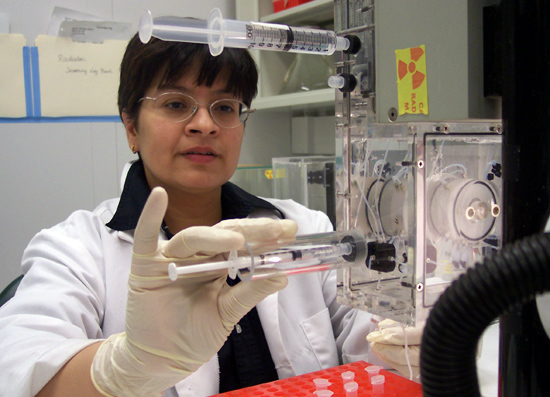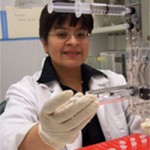State Grant will Support Hingorani’s Research on Lynch Syndrome


Manju Hingorani, professor of molecular biology and biochemistry, received a grant worth $324,127 from the State of Connecticut Department of Public Health on May 1.
Hingorani will use the grant to address an important need for new diagnostic technology for Lynch Syndrome (LS), a genetic disorder involving malfunction of DNA mismatch repair, which substantively increases the risk of colorectal, endometrial and other cancers. About 150,000 patients are diagnosed with colon cancer in the U.S. per year, of whom more than one in 35 have LS, and three or more of their relatives are at risk for the disorder (about one in 500 Connecticut residents).
“Early diagnosis of LS can profoundly affect the way in which cancer patients are treated—with respect to surgery, chemotherapy and future surveillance—and provide analogous benefits to their family,” Hingorani explained.
Current validated tests for LS have limitations that lower their feasibility and widespread use in screening at-risk populations.
“Our hypothesis is that the core functions of MMR proteins can be measured directly, quantitatively, rapidly, reliably and at clinically relevant protein concentrations on a nano-structured surface,” she said.
This project, proposed in collaboration by investigators Hingorani and Prabir Patra, assistant professor of mechanical engineering and director of the Biomedical Engineering Program at the University of Bridgeport, is expected to enable development of novel diagnostic nanosensors that will enable substantive advances in the screening, diagnosis and treatment of colorectal and other cancers.

